Pregnant women should not eat too much pickled vegetables during Tet to avoid affecting their health and the fetus.
Pickled melon (pickled cucumber) is a familiar dish of Vietnamese people, especially in the Tet tray. Besides banh chung, banh tet, jellied meat, gio, nem, pickled melon helps the meal more delicious and not feel greasy when eaten with greasy dishes. This is also one of the dishes that pregnant women often like.
Pickles are made from many types of vegetables, the most common of which are mustard greens (green mustard, cabbage...). These vegetables often have low nutritional value, on average 100g of mustard greens provide about 16 kcal, 1.2-1.6g of protein and about 1.8g of fiber.
Nutritionist Nguyen Thi Quynh, Tam Anh General Hospital, said that pregnant women can eat pickles to increase their appetite during pregnancy and provide more fiber to help improve digestive function and reduce the risk of constipation. However, pregnant women need to follow some principles and limit eating too much to avoid affecting their health and the fetus.
Bloating and flatulence: Pickles must go through a fermentation process, forming lactic acid. During the first few days of pickling, microorganisms convert nitrates into nitrites, increasing the nitrite content - a substance harmful to the health of pregnant women.
Nitrite in pickled cucumbers combined with amine radicals in fish meat can form nitrosamine - one of the carcinogens. If pregnant women eat unripe or unhygienic pickled cucumbers, it can cause bloating, indigestion and affect the health of the fetus.
Risk of high blood pressure : Pickles contain a lot of salt. When pregnant women eat too many pickles, the amount of salt in the body also increases, causing high blood pressure, especially for people with a history of high blood pressure.
According to the US Centers for Disease Control and Prevention (CDC), high blood pressure during pregnancy increases the risk of complications such as preeclampsia or eclampsia, kidney damage, and damage to the mother's blood vessels. This affects the supply of oxygen and nutrients to the fetus.
Increased risk of edema : Melons contain a lot of salt, which increases the risk of water retention, leading to signs of swelling in the legs. In addition, high levels of sodium in the blood make pregnant women feel thirsty, restless, have difficulty breathing, have difficulty sleeping, and urinate less.
Kidney and stomach dysfunction : Eating too much pickled cucumber can cause kidney dysfunction, especially for people with a history of kidney disease. Pregnant women with a history of stomach disease should avoid this dish because it can easily cause bloating, indigestion, and stomach pain.
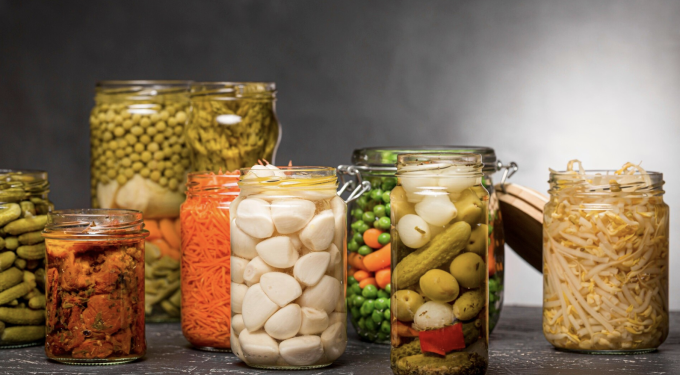
Pickled melon is a popular dish during Tet. Photo: Freepik
Ensure the pickles are hygienic : Pickles can cause gastrointestinal diseases and diarrhea if not cleaned and preserved properly. Pregnant women should eat fresh pickles from reputable addresses or make them at home to ensure food hygiene and safety. It is best to process ripe pickles in the form of stir-fries or soups to ensure hygiene and safety. Avoid eating pickles that are quick to pickle, still green or have fermented scum that affects health.
Limit sodium intake: Pickles contain a lot of salt, so pregnant women should eat a reasonable amount to avoid high blood pressure and edema.
Limit intake : This is not a food with high nutritional value. Pregnant women can eat about 50-100g per day and should not eat regularly.
Diverse diet : Pregnant mothers should diversify their diet to ensure adequate nutrition for fetal development. Pickled melon is a side dish and should not be used as a substitute for other dishes to avoid affecting daily nutritional balance, especially during Tet.
Maintain water balance in the body : Eating pickles contains a lot of salt and can lead to dehydration, so pregnant women should drink enough water during the day to keep the body's salt and water balance.
Nutritionist Quynh recommends that pregnant women with diseases such as gastritis, high blood pressure, kidney disease should absolutely avoid this food to limit the danger. During pregnancy, nutrition is very important to ensure the health of the mother and the development of the fetus. Pregnant women should consult a doctor and have a suitable diet.
Thuy Nguyen
Source link







![[Photo] Closing ceremony of the 18th Congress of Hanoi Party Committee](https://vphoto.vietnam.vn/thumb/1200x675/vietnam/resource/IMAGE/2025/10/17/1760704850107_ndo_br_1-jpg.webp)
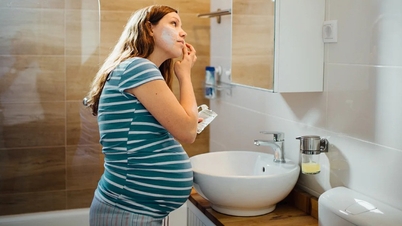









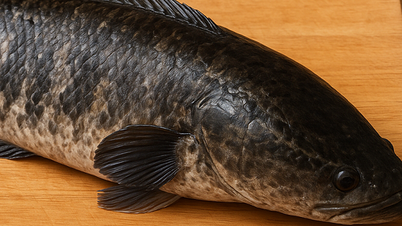
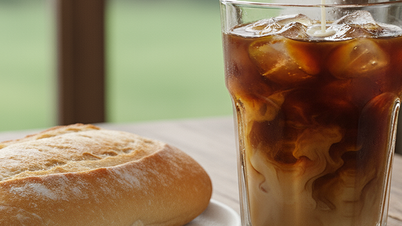
















![[Photo] Nhan Dan Newspaper launches “Fatherland in the Heart: The Concert Film”](https://vphoto.vietnam.vn/thumb/1200x675/vietnam/resource/IMAGE/2025/10/16/1760622132545_thiet-ke-chua-co-ten-36-png.webp)








































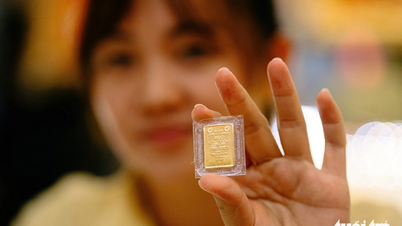














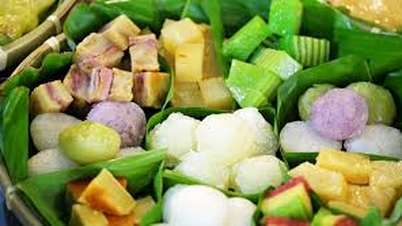



















Comment (0)